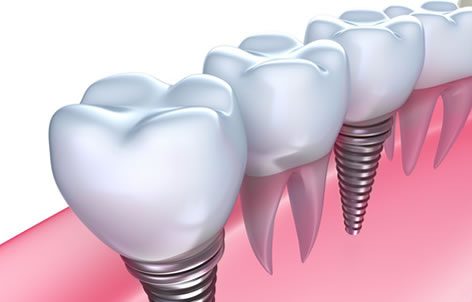
Dental implants are a smart investment, offering a strong, natural-looking replacement for missing teeth that can last for decades. But just like natural teeth, implants need care and attention to stay in great shape. Looking after them isn’t complicated, but it does take consistency and awareness. Whether you’ve had your implants for years or are considering the procedure, these practical tips can help protect your oral health and ensure your implants stay in top condition.
Let’s explore how to keep your implants clean, secure, and functioning beautifully for the long haul.
Brush and Floss Like You Mean It
A good oral hygiene routine is the foundation of long-term implant success. That means brushing at least twice a day and flossing once a day. Even though implants aren’t real teeth, the surrounding gums and bone are real—and they’re what hold your implant in place.
Use a soft-bristled toothbrush and a non-abrasive toothpaste to avoid scratching the implant crown. An electric toothbrush can offer more thorough cleaning, especially around the gum line. For flossing, try implant-specific floss or interdental brushes, which are designed to clean around the implant post without damaging it.
Don’t Skip Your Check-Ups
Seeing your dentist regularly helps catch problems before they turn into costly repairs. Most implant patients are advised to book professional cleanings and check-ups every six months.
During these visits, your dentist can assess how your implant is holding up, check for signs of gum inflammation, and clean areas that are hard to reach at home. If you’re seeing a dental implants specialist, they might suggest more frequent visits based on your needs.
Watch What You Bite Into
Dental implants are strong, but they’re not indestructible. Avoid biting into very hard items like ice, popcorn kernels, or pens. These habits can crack or chip the crown. If you enjoy chewy or crunchy foods, just be mindful of how you’re chewing and try to use both sides of your mouth evenly.
If you grind your teeth at night, ask your dentist about a custom mouthguard. Grinding can place extra pressure on implants and wear them down over time.
Choose the Right Tools
Along with regular brushing and flossing, consider using additional cleaning tools. Water flossers are excellent for flushing out debris between teeth and around the implant. Antibacterial mouthwashes can also help reduce plaque and bacteria, particularly if you’re prone to inflammation.
Some patients benefit from using a rubber-tipped stimulator to massage the gums and improve blood flow, which supports gum health around the implant.
Look Out for Signs of Trouble
Knowing what’s normal and what’s not can make a big difference. Healthy implants feel secure and shouldn’t cause pain. If you experience persistent swelling, bleeding, discomfort while chewing, or if the implant feels loose, it’s time to see your dentist.
These symptoms could be early signs of peri-implantitis, a condition similar to gum disease that affects the tissue around implants. Catching it early often leads to easier treatment and better outcomes.
Lifestyle Choices Matter
Smoking is one of the biggest risk factors for implant failure. It affects healing after surgery and can reduce blood flow to the gums, making it harder for your mouth to fight off infections. If you’ve recently had implants placed or are thinking about getting them; it’s a good time to consider quitting.
A healthy diet can support gum and bone health, too. Include calcium-rich foods, lean proteins, and crunchy vegetables to keep your teeth and gums strong. Hydration is just as important as saliva helps wash away bacteria and maintain a healthy oral environment.
Cost Doesn’t Equal Compromise
Some patients worry that affordability means cutting corners on quality. But if you’ve chosen dental implants Sydney from a reputable clinic, you’re likely in good hands. The dental implants Sydney cost can be more accessible than many assume, and with proper maintenance, the value is long-term.
Many clinics offering cheap dental implants Sydney still use high-quality materials and experienced professionals; it’s just a matter of smart planning and transparent pricing.
If you’re still in the research phase, it’s worth learning more about tooth implants Sydney cost by consulting with a trusted provider. Just be sure they have a track record of successful implant procedures and follow-up care.
Ask About Maintenance Plans
Some dental practices offer tailored maintenance plans for implant patients. These packages might include extra cleanings, digital x-rays, and priority access to follow-up appointments. Having a structured care plan in place helps you stay consistent and spot small issues early.
It’s worth asking your provider about this, especially if you want your implants to remain part of your smile for many years. Whether you’ve gone with the best dental implants Sydney has to offer or are still weighing your options, ongoing support plays a big role in their long-term success.
Final Thoughts
Dental implants can restore confidence, improve chewing, and protect your facial structure—but only if they’re maintained properly. Daily care, regular check-ups, and smart lifestyle choices all contribute to their longevity. A little attention each day can help you avoid complications and costly treatments in the future.
If you’ve already made the commitment, protect it with consistent habits. And if you’re considering implants, remember that good care starts before the procedure and continues for life. A confident, healthy smile is well worth the effort.
